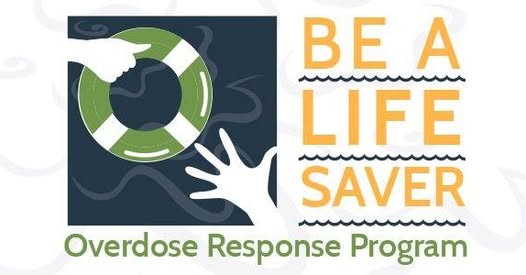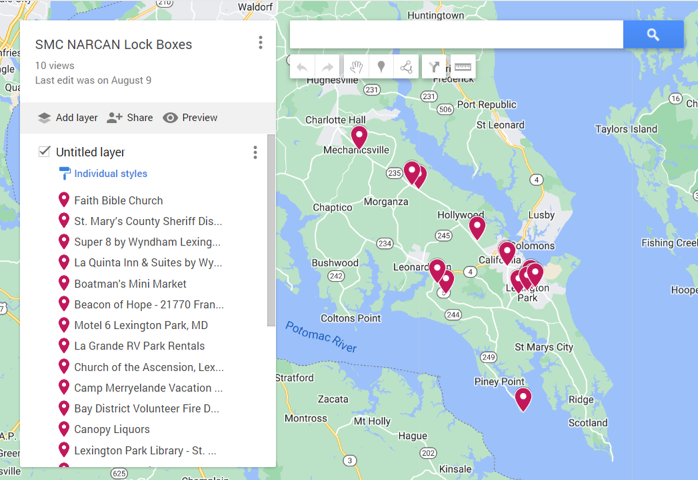Eng
Es
It
Sp
Overdose Response Program
Training for Community Members
The Overdose Response Program is FREE and open to anyone who would like to learn:
- How opioids impact the brain and body
- How to recognize the signs and symptoms of opioid overdose
- How to administer naloxone
- How to care for someone who is having an overdose until emergency help arrives
Participants receive a free rescue kit that includes naloxone (Narcan®), a life-saving medication that may be able to restore the breathing of a person who has overdosed on opioids (e.g., heroin, fentanyl, oxycodone, hydrocodone, morphine, methadone, etc.) – available via scheduled curbside pickup.
Upcoming Classes
Virtual classes are currently being offered:
- Thursday, May 6, 2025, from 11:00 a.m. – 12:00 p.m. – Virtual Training
- Wednesday, May 14, 2025, from 11:00 a.m. – 12:00 p.m. – Virtual Training
- Friday, May 30, 2025, from 3:00 – 4:00 p.m. – Virtual & In-Person at the Health Hub
Who Should Participate in the Overdose Response Program?
- Anyone with close contacts (e.g., family members, friends, housemates, neighbors) who are using opioids
- Anyone who may be in a situation (e.g., work, volunteer, social) where an overdose may occur
- Anyone currently receiving methadone
- Anyone with an opioid prescription
- Anyone with a history of opioid abuse
- Anyone who might be using opioids for non-medical reasons
Who Should Carry Naloxone?
- Anyone who has completed the Overdose Response Program
- Anyone with a known history of IV drug use or misuse of prescription opioids
- Anyone who is prescribed high-dose opioids or is prescribed opioids chronically
- Anyone who has been hospitalized for an opioid overdose
- Anyone who uses opioids with antidepressants, benzodiazepines, alcohol, or other drugs
- Anyone who uses opioids with a history of major organ dysfunction (renal, hepatic, cardiac, or pulmonary)
- Anyone using opioids with a history of mental illness
- Anyone receiving treatment for substance use disorder
Naloxone Emergency Boxes
SMCHD has placed naloxone lock boxes throughout the county for use in emergency overdose situations. These emergency boxes expand access to naloxone or Narcan®, a medication that can reverse the effects of an opioid overdose, helping keep an overdose victim alive until medical help arrives.
How to Administer Naloxone
Maryland’s Good Samaritan Law
Maryland’s Good Samaritan Law provides legal protections for those assisting someone who may be overdosing.
Additional Resources
Connect With Us
Mon – Fri: 8:00 am – 5:00 pm
Mon – Fri: 8:30 am – 4:00 pm
Mon & Thurs: 7:00 am – 2:00 pm
Tues, Wed, & Fri: 7:00 am – 4:30 pm
News & Updates
Enter your email to subscribe to the SMCHD newsletter and receive notifications of new health-related information.



